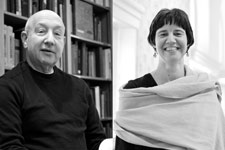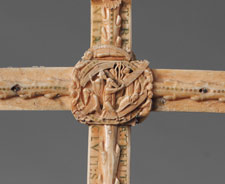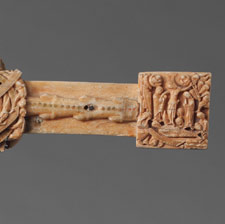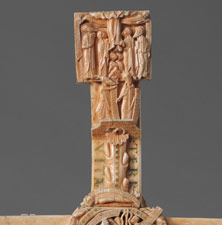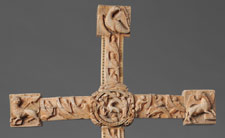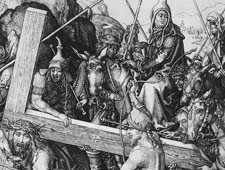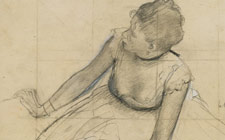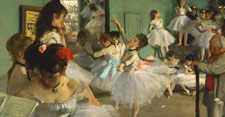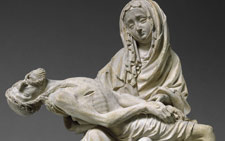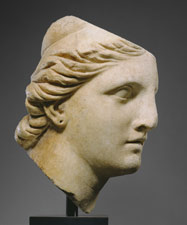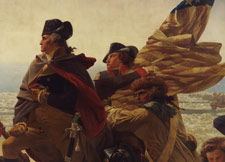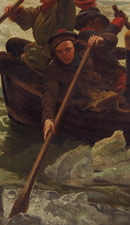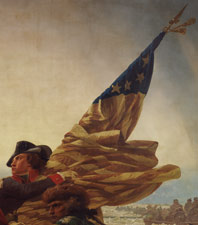New Connections appear every Wednesday. Sign up for a reminder.
Medieval art curator Melanie Holcomb and drawings and prints curator George Goldner discuss the Museum's responsibilities when showing religious art.
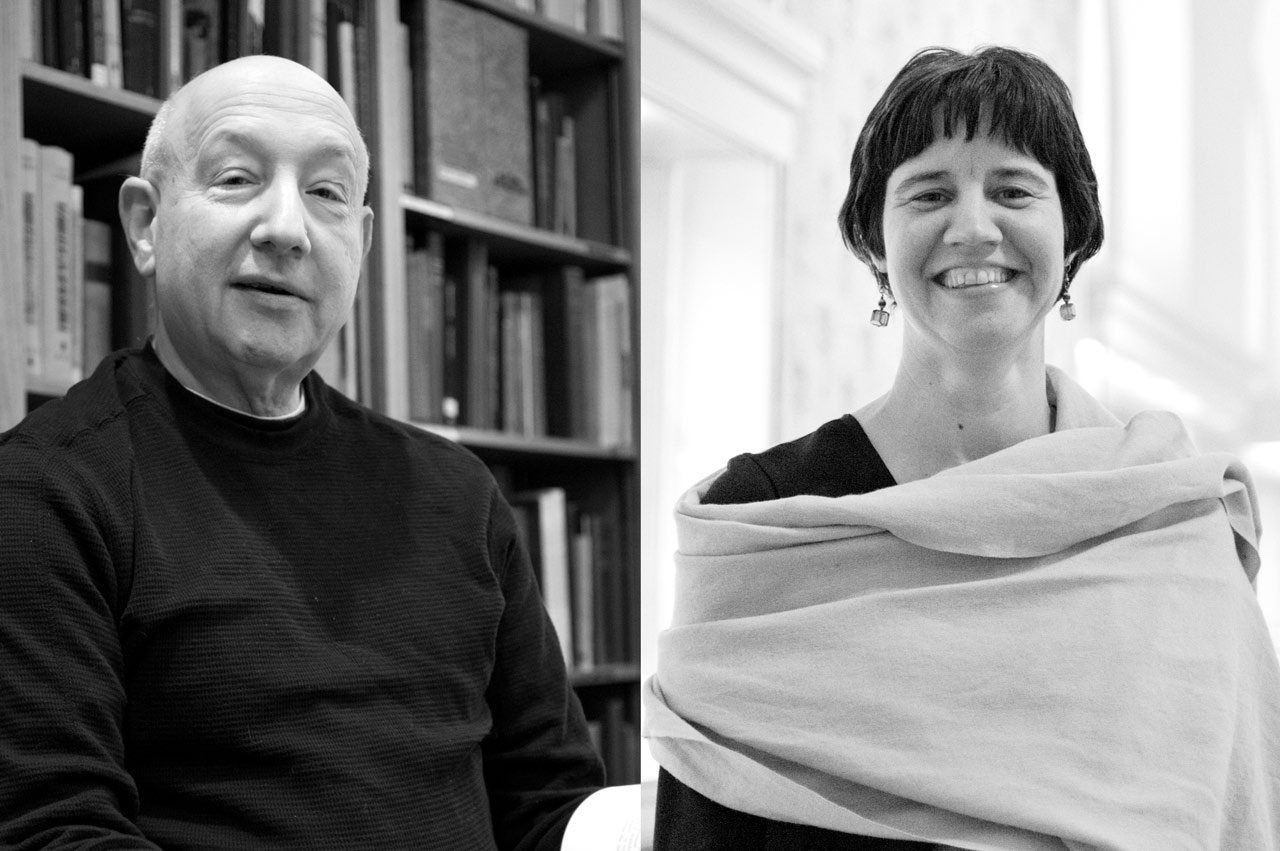 1280851
1280851 1280875
1280875 6891024
6891024 6301024
6301024 7931024
7931024 7181024
7181024 7381024
7381024 1280907
1280907 7521024
7521024 12561024
12561024 10271024
10271024 10101024
10101024 1280786
1280786 1280869
1280869 1280965
1280965 10141024
10141024 7111024
7111024 7741024
7741024 1280796
1280796 9441024
9441024 1280666
1280666 11811024
11811024 1280803
1280803 8131024
8131024 8531024
8531024 4281024
4281024 4591024
4591024 1280735
1280735 1280922
1280922 5901024
5901024 9021024
9021024 1280852
1280852
I'm Melanie Holcomb and I'm a curator of Medieval art at the Metropolitan Museum. I'm George Goldner. I'm a curator of Drawings and Prints at the Museum.
Religious belief has provided the inspiration and the context for much of the art in the Metropolitan Museum.
And...we're a secular institution, or I'd like to think we are. I'm wondering if we have any obligation to be sensitive
in our presentation of the art to believers, as it were, to people who take these objects
seriously as a part of their everyday religious practice. George: I think that quite to the contrary, we have an
obligation to be objectively insensitive, to say that it is not our responsibility to care whether a visitor is Catholic, Jewish, Muslim
Zoroastrian or anything else. It's not our job, obviously, to try and insult people either, but it's, it is our job to present
works of art with fidelity to the purpose and historical context and aesthetic context in which it was made.
Melanie: So, if we're thinking about something like the Cloisters Cross, which is one of the great masterpieces of the Medieval collection, that is filled with inscriptions that could be understood as a
strongly anti-Jewish object. It's, it's very much that part of medieval Christianity that understood itself as distinct from and better than
Jewish practice, Jewish belief, and we downplay that. At times it's not even mentioned at all.
George: But who, who would be insulted? Jews, anti-Semites, Catholics? I mean, who would be insulted by a true
presentation of it it? I mean that was, anti-Semitism was one of the leitmotifs of medieval Christianity. Melanie: Absolutely, absolutely.
George: I mean, if you look at depictions of Christ carrying the cross or the Ecce Homo, there are always, or mocking of Christ, there's always... Melanie: Right...right...right... George: a bunch of really
ugly snarling people who are all Jews, with an occasional Roman... Melanie: Although, you know it's often never mentioned that that's what they're doing. George: No, but they are. Melanie: and I know that... George: ...but they are... Melanie: ...that's right...that's right...
George: Who else was populating Jerusalem at that period? I mean a few Romans are shown... Melanie: ...right... George: ...generally in better outfits than the Jews. So I guess my feeling is that if one,
one shouldn't focus on that as the particular subject of the cross or of a mocking of Christ or of Christ Carrying the Cross, but it's part of it. And I think to leave it out is just falsifying history.
Whereas for example, Degas was a vehement rabid anti-Semite. I haven't seen every painting or drawing by him but of the hundreds and hundreds that I've seen I've never seen the slightest indication in any of them... Melanie: ...right. George: that this affected his art.
So in that case I think it's a biographical detail, which is largely irrelevant... Melanie: ...yeah...yeah...yeah. George: ...for looking at a work of art.
So, if you had a Degas dancers in a gallery I don't think it needs to mention this subject 'cause it's not relevant. Melanie: I think we as an institution want to draw attention to the
aesthetic merits of an object and so there might be a sense that it kind of gets in the way, that the message will take over.
George: But whose message is it? Melanie: ...right... George: I mean the message that one should be trying to remain honest to, is the message of the artist who made an object and the people who commissioned it. It's really not up to us to edit that any more than
it is for us to put something in which isn't there. No art historian really believes that one is studying the pure history of aesthetics. Melanie: ...right...right...right... George: We're studying the history of art and the history of art is partially a history of the people who made it.
Melanie: Well, even if we take aside the history part, I think there are people who would accuse us of divesting our objects of their
spiritual import, and that we're criticized for it. We perhaps present them
too much as historical objects, and we don't acknowledge their continuing
power as a source of inspiration. George: Well, I think that any object which was meant to have religious significance, that should be brought up just as any object that had
political significance should be brought up. Melanie: ...right... George: I mean one shows Washington Crossing the Delaware. That isn't meant as just
a guy in a boat crossing a river. The fact that it's Washington is central to the aesthetic
and I don't believe a museum exists to make political and religious judgments. Melanie: ...right...
George: A museum makes aesthetic and historical judgments, not political and religious ones.
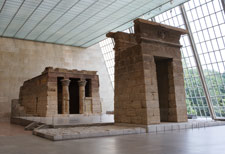 |
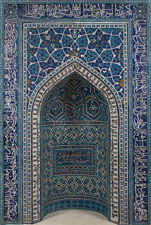 |
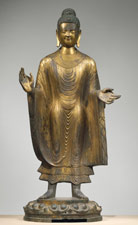 |
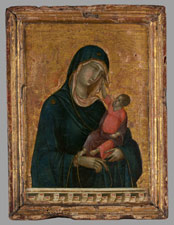 |
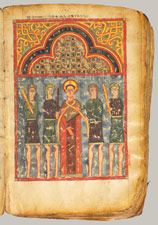 |
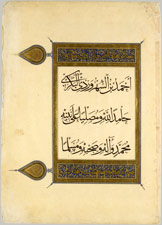 |
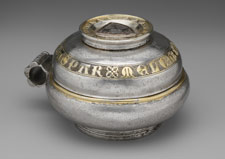 |
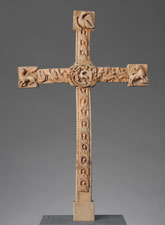 |
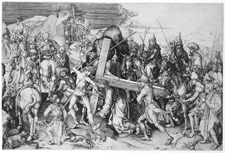 |
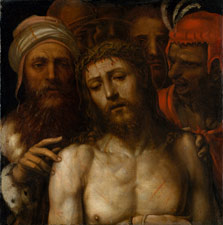 |
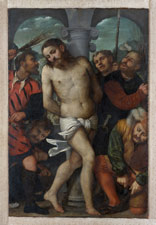 |
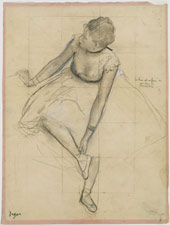 |
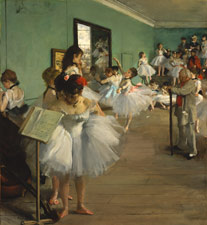 |
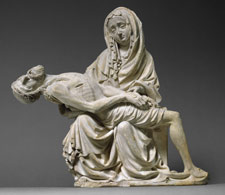 |
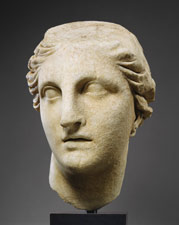 |
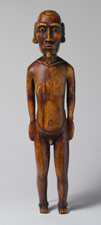 |
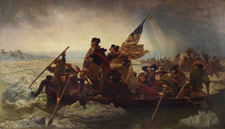 |
Works of art in order of appearanceLast Updated: June 22, 2015. Not all works of art in the Museum's collection may be on view on a particular day. For the most accurate location information, please check this page on the day of your visit. |
||
 |
The Temple of Dendur Roman period, ca. 15 b.c. Egyptian; Dendur, Nubia Sandstone Given to the United States by Egypt in 1965, awarded to The Metropolitan Museum of Art in 1967, and installed in The Sackler Wing in 1978 (68.154) More information: The Collection Online Not on view
|
 Egyptian ArtFirst Floor
Egyptian ArtFirst Floor |
 |
Mihrab 1354 Isfahan, Iran Mosaic of monochrome-glaze tiles on composite body set on plaster Harris Brisbane Dick Fund, 1939 (39.20) More information: The Collection Online Not on view
|
 Islamic ArtSecond Floor
Islamic ArtSecond Floor |
 |
Standing Buddha Northern Wei dynasty, mid-5th century China Gilt bronze John Stewart Kennedy Fund, 1926 (26.123) More information: The Collection Online Not on view
|
 Asian ArtSecond Floor
Asian ArtSecond Floor |
 |
Madonna and Child ca. 1300 Duccio di Buoninsegna (Italian, Sienese) Tempera and gold on wood, with original engaged frame Purchase, Rogers Fund, Walter and Leonore Annenberg and The Annenberg Foundation Gift, Lila Acheson Wallace Gift, Annette de la Renta Gift, Harris Brisbane Dick, Fletcher, Louis V. Bell, and Dodge Funds, Joseph Pulitzer Bequest, several members of The Chairman's Council Gifts, Elaine L. Rosenberg and Stephenson Family Foundation Gifts, 2003 Benefit Fund, and other gifts and funds from various donors, 2004 (2004.442) More information: The Collection Online Not on view
|
 European PaintingsSecond Floor
European PaintingsSecond Floor |
 |
Page from an Illuminated Gospel late 14th century Ethiopia, Highland region Parchment (vellum), wood (acacia), tempera, ink Rogers Fund, 1998 (1998.66) More information: The Collection Online Not on view
|
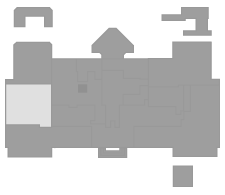 Arts of Africa, Oceania, and the AmericasFirst Floor
Arts of Africa, Oceania, and the AmericasFirst Floor |
 |
Double-page colophon (left side) from the Anonymous Baghdad Qur’an 1308 Iraq, Baghdad Ink, gold, and colors on paper Rogers Fund, 1955 (55.44) More information: The Collection Online Not on view
|
 Islamic ArtSecond Floor
Islamic ArtSecond Floor |
 |
Double Cup ca. 1300–1350 Germany or Bohemia Silver and gilt-silver with applied opaque enamel Purchase, The Cloisters Collection, 1983 (1983.125a, b) More information: The Collection Online Not on view
|

Medieval Art and The CloistersThe Cloisters at Fort Tryon Park |
 |
The Cloisters Cross 12th century English Walrus ivory The Cloisters Collection, 1963 (63.12) More information: The Collection Online Not on view
|

Medieval Art and The CloistersThe Cloisters at Fort Tryon Park |
 |
Christ Carrying the Cross ca. 1475–80 Martin Schongauer (German) Engraving Purchase, The Sylmaris Collection, Gift of George Coe Graves, by exchange, 1935 (35.27) More information: The Collection Online Not on view
|
 Drawings and PrintsSecond Floor
Drawings and PrintsSecond Floor |
 |
Christ Presented to the People (Ecce Homo) Sodoma (Giovanni Antonio Bazzi) (Italian, Sienese) Oil on canvas Gift of Asbjorn R. Lunde, in memory of his parents, Karl and Elisa Lunde, 1996 (1996.261) More information: The Collection Online Not on view
|
 European PaintingsSecond Floor
European PaintingsSecond Floor |
 |
The Flagellation; The Madonna of Mercy, processional banner ca. 1540 Girolamo Romanino (Italian, Brescian) Distemper and oil(?) on canvas Purchase, Anonymous Bequest, by exchange, 1989 (1989.86) More information: The Collection Online Not on view
|
 European PaintingsSecond Floor
European PaintingsSecond Floor |
 |
Dancer Adjusting Her Slipper 1873 Edgar Degas (French) Graphite heightened with white chalk on faded pink paper H. O. Havemeyer Collection, Bequest of Mrs. H. O. Havemeyer, 1929 (29.100.941) More information: The Collection Online Not on view
|
 Drawings and PrintsSecond Floor
Drawings and PrintsSecond Floor |
 |
The Dance Class 1874 Edgar Degas (French) Oil on canvas Bequest of Mrs. Harry Payne Bingham, 1986 (1987.47.1) More information: The Collection Online Not on view
|
 European PaintingsSecond Floor
European PaintingsSecond Floor |
 |
Pietà (Vesperbild) ca. 1400 Bohemian Limestone The Cloisters Collection, 2001 (2001.78) More information: The Collection Online Not on view
|

Medieval Art and The CloistersThe Cloisters at Fort Tryon Park |
 |
Head of Athena late 3rd–early 2nd century b.c.; Hellenistic Greek Marble Purchase, Lila Acheson Wallace Gift, 1996 (1996.178) More information: The Collection Online Not on view
|
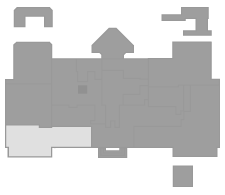 Greek and Roman ArtFirst Floor and Mezzanine
Greek and Roman ArtFirst Floor and Mezzanine |
 |
Male Figure (Moai Tangata) early 19th century Rapa Nui people, Rapa Nui (Easter Island) Wood, obsidian, bone Gift of Faith-dorian and Martin Wright, in honor of Livio Scamperle, 1984 (1984.526) More information: The Collection Online Not on view
|
 Arts of Africa, Oceania, and the AmericasFirst Floor
Arts of Africa, Oceania, and the AmericasFirst Floor |
 |
Washington Crossing the Delaware 1851 Emanuel Gottlieb Leutze (German, active United States) Oil on canvas Gift of John Stewart Kennedy, 1897 (97.34) More information: The Collection Online Not on view
|
 American Paintings and SculptureFirst and Second Floors
American Paintings and SculptureFirst and Second Floors |
© 2011 The Metropolitan Museum of Art |
||
